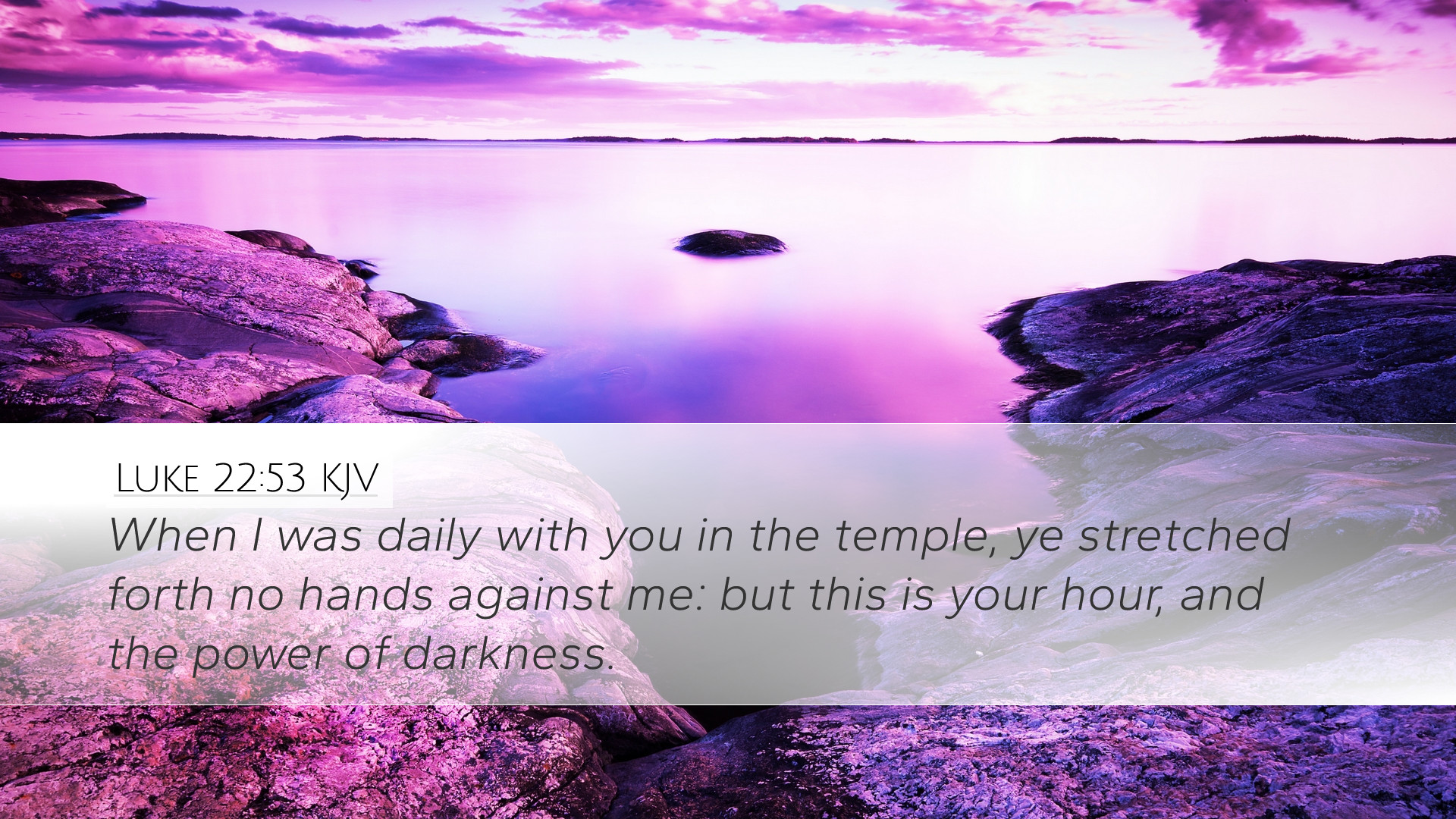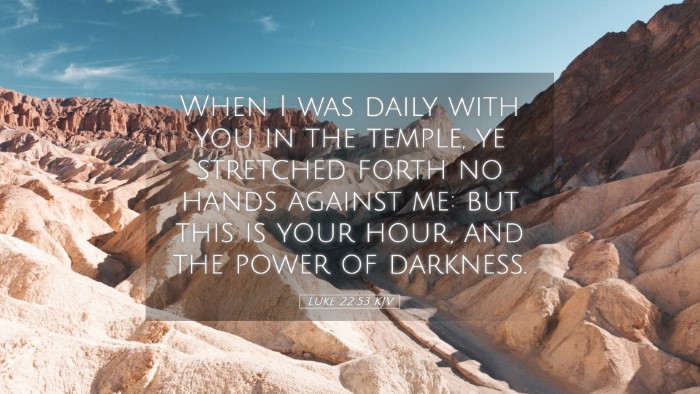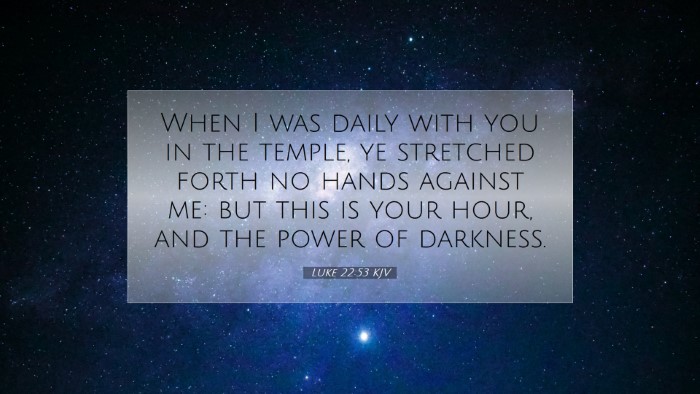Commentary on Luke 22:53
Verse: "When I was daily with you in the temple, ye stretched forth no hands against me: but this is your hour, and the power of darkness."
Introduction
This verse captures a pivotal moment in the narrative of the Gospels, where Jesus highlights the contrast between His peaceful presence among the people and the treachery of the religious leaders who sought to arrest Him. The tension between light and darkness is a prevalent theme in biblical literature, and here it encapsulates the final hours leading to the crucifixion.
Contextual Analysis
In this passage, Jesus stands before His captors at the climax of His earthly ministry. The setting is critical; He is in the Garden of Gethsemane after His prayerful struggle with the impending sacrifice. Here, He addresses both His disciples and the religious authorities, providing insight into the spiritual dynamics at play.
The Authority of Darkness
Albert Barnes emphasizes the phrase "this is your hour, and the power of darkness," explaining that it refers to the period allowed by God for evil to prevail temporarily. Jesus reveals that His arrest is not an accidental circumstance but a divinely orchestrated event, allowing the forces of evil to manifest their true intentions.
- Divine Sovereignty: Barnes articulates the idea that while men act according to their sinful nature, God's providence remains supreme, orchestrating events for the fulfillment of His redemptive purposes.
- Temporary Authority: This hour of darkness is noted as temporary—victory over evil would ultimately belong to Christ through His resurrection.
The Gentle Reminder of Jesus
Matthew Henry points out that Jesus gently reminds His captors of His presence in the temple, where He ministered openly. His observation serves as a critique of their cowardice; they did not seize Him then because He was in a place of prominence and authority.
- Public vs. Private Actions: The public nature of Jesus’ teachings in the temple contrasts sharply with the hidden agenda of the leaders. Henry’s commentary highlights the irony of their actions, as they conspired under the cover of night.
- Judgment Upon Leaders: There is a foreshadowing in this moment of judgment for the leaders who have not acted in accordance with God’s will, reinforcing the biblical principle that those in authority are accountable to God.
Application for Believers
Adam Clarke provides an application to the modern believer regarding the battle between light and darkness. He underscores the importance of vigilance and the readiness to stand firm in the truth, even when faced with opposition.
- Spiritual Warfare: Clarke notes that believers today are in a similar spiritual battle where darkness seems to dominate. However, they are reminded that they do not fight alone; their strength comes from Christ’s victory.
- Hope in Christ: The assurance of Christ’s ultimate victory provides hope despite present struggles, encouraging believers to persevere and trust in God’s plan.
Conclusion
The profound implications of Luke 22:53 continue to resonate with those who read and interpret this text. Through the combined insights of Matthew Henry, Albert Barnes, and Adam Clarke, we gain a deeper understanding of the dynamics of betrayal, the temporary nature of evil's authority, and the encouragement for believers to remain steadfast in faith.
As pastors, students, theologians, and scholars reflect upon this verse, may they find both challenge and comfort, leading to a greater appreciation for the sacrifice of Christ and a renewed commitment to bear witness in the face of darkness.


